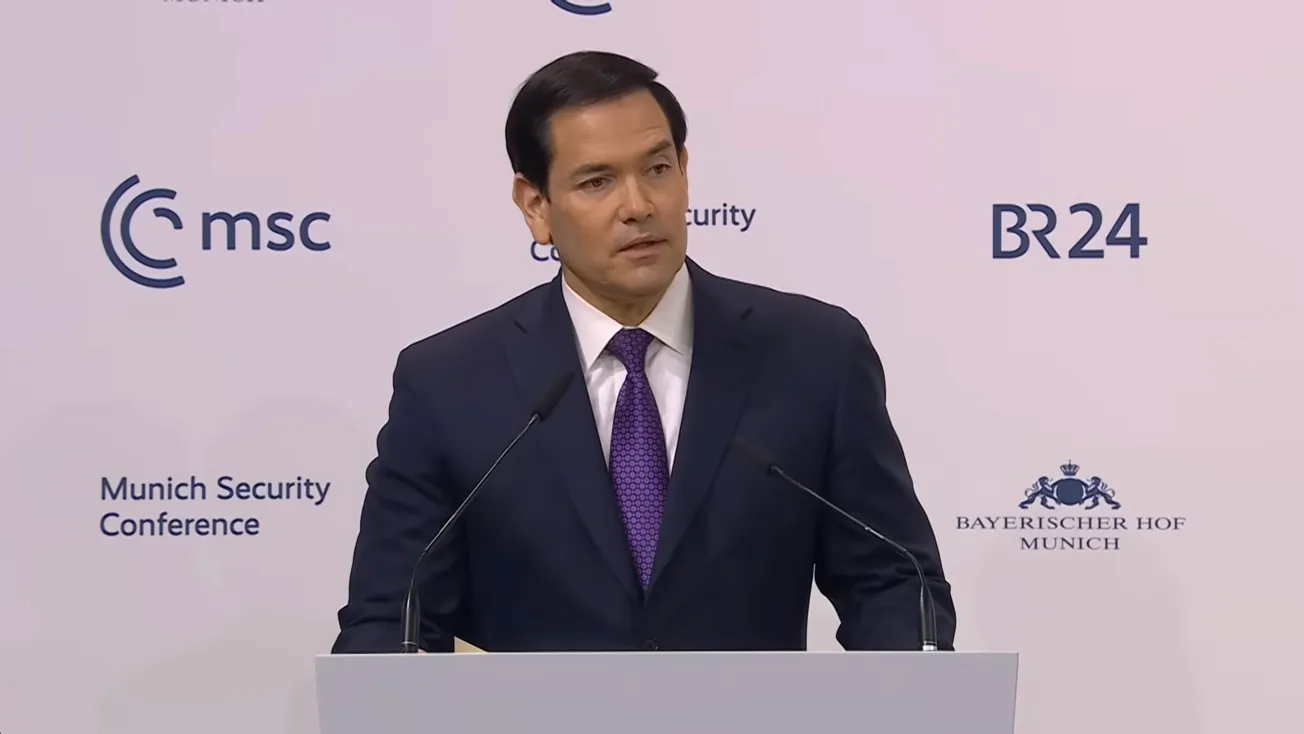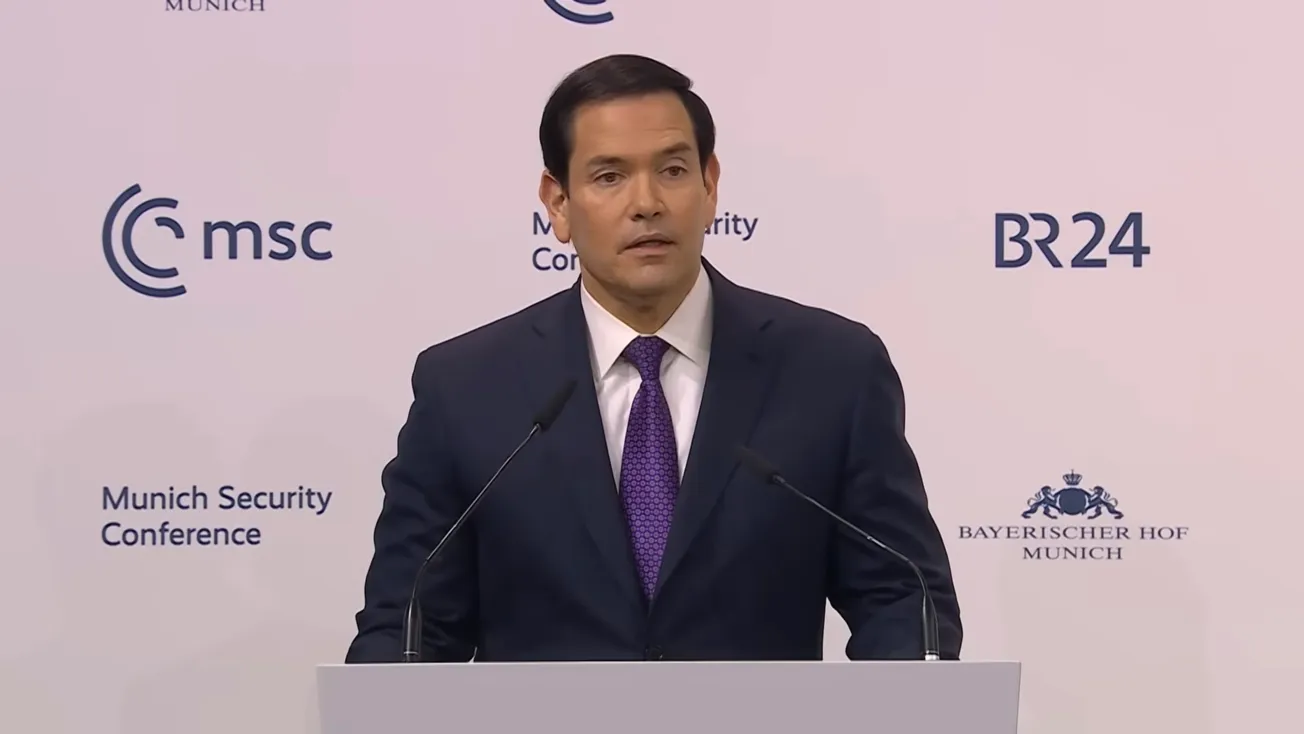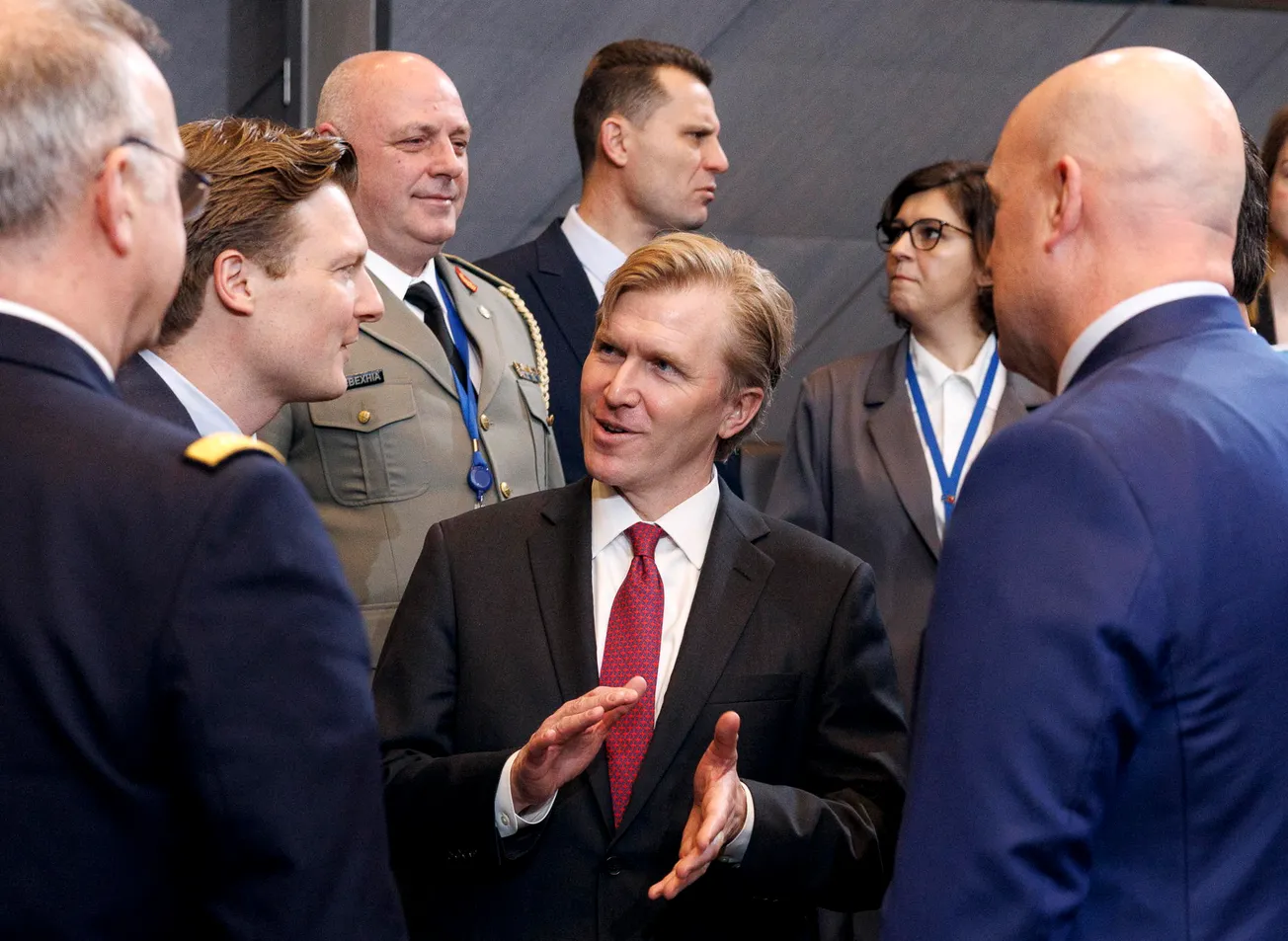The Lead
"Create a Vision of How You Want the World to Be—and Be It!"
by Dennis Speed (EIRNS) — Apr. 06, 2024
April 5, 2024 (EIRNS)—When, in 1429, the 17-year-old army commander Jeanne d’Arc (Joan of Arc) looked before her at the city of Orleans, and considered how she would break the English siege against it, what was her vision of the plan of battle? What directions did she give her troops? It was not Joan’s comprehensive grasp of military strategy which inspired the French army, defeated by the English for nearly 100 years, to follow her. It was her “warrior soul,” fighting on behalf of a higher purpose, which transmitted to that very competent, but very uninspired, French fighting force, the concept of victory that they had lacked for decades, and that she embodied.
“I think the one element which is absolutely irreplaceable, is the idea of what we do to put the world together. And I also think that what Prof. (Fernando) Garzón said—how this can only function if you have regional integration. Now, I think that that is something which absolutely needs to be put on the agenda as well, and that is a concrete plan of how to put the world back into order, (of) which the Oasis Plan is supposed to be one big area. And as we will discuss next week, this is not a plan just about reconstruction of Palestine, Gaza, but it is a plan to solve the problem between Israel and Palestine, by taking the entire region, from India to the Mediterranean, from the Caucasus to the Gulf. All of Southwest Asia has to be an integrated plan of reconstruction for it to work”: Helga Zepp-LaRouche offered this as an example of the “top-down” policy formulation-process that the International Peace Coalition, which held its 44th consecutive Friday weekly meeting on April 5, must engage in.
For this session, the featured speakers were:
Helga Zepp-LaRouche, Founder of the Schiller Institute;
Prof. Richard Anderson Falk, professor emeritus of international law at Princeton University, Euro-Mediterranean Human Rights Monitor’s Chairman of the Board of Trustees, former United Nations Special Rapporteur on the situation of human rights in the Palestinian territories from 2008 to 2014;
Jens Jørgen Nielsen, historian, author, former Moscow correspondent of the Danish newspaper Politiken, representative of the Russian-Danish Dialogue, Denmark;
Francis Anthony Boyle, American human rights lawyer and professor of international law at University of Illinois, counsel to Bosnia and Herzegovina and to the Provisional Government of the Palestinian Authority;
Prof. Fernando Garzón, architect, urban planner and leader of the Ecuadorian-Palestinian Union, adviser to various UN agencies, the Inter-American Development Bank, and others.
At various points during the discussion period, as expressed in some of the comments recorded in the “chat room” and otherwise, some participants were frustrated by what they termed “academic discussion” and wanted to know “what are we going to do.” Zepp-LaRouche’s response:
“I think when you are fighting a war, it is extremely important that you know what is the strategy of your opponent. I think what we are trying to do with the IPC, but also the Schiller Institute in general, is to get a clear idea of what are the problems and forces we are combatting. Obviously, the terrible truth people are now waking up to, is that we are confronted with a system which is basically a global fascist system. Go back to some of the old speeches of my late husband, Lyndon LaRouche, which periodically you should do, because you will be absolutely astounded at the clarity he has been saying this since the 1970s, ’80s, and ’90s. I think that is what very few people dare to realize, but the present system as it has evolved is one of oligarchy, imperialism, and depopulation on a global scale.”
Professor Francis Boyle, in an example of how to wage thoughtful, nonviolent warfare against the Anglo-American principalities and powers that not only allow, but instigate the ongoing genocide in Gaza, proposed a flank which, if vigorously exploited, could lead to a crucial victory. “The UN General Assembly can admit Palestine as a full-fledged UN member state. Right now Palestine is a UN observer state, along the lines of Switzerland, before it became a full-fledged UN member state. Today Palestine is recognized by about 139 states, de jure, as a state.
“I did all the legal work for the Palestinians on that.... So far, the United States government has vetoed every attempt by Palestine to be admitted as a full-fledged UN member state. The Palestinians have announced that they’re going to try again sometime during the month of April. I guess we’ll see what the Biden Administration decides to do. They could abstain. But if the Biden Administration vetoes their admission, the UN General Assembly can admit them, by means of a two-thirds vote, and the votes are there.
“Abstentions and no-shows do not count in the final tally. The votes are there—we know they’re there. This is extremely important. No UN member state has ever been destroyed, in the history of the United Nations. Some have disintegrated, like my former adversary, Yugoslavia..Clearly, Israel and its elite want to destroy Palestine, and the Palestinians. I have no doubt about the matter. And a UN membership will keep them alive.” Zepp-LaRouche expressed her agreement with this proposal.
Several other actionable proposals were also made, but it is the method by which these proposals are beginning to be generated that matters most. During the weekly deliberations, there are many important questions and disputes. The differences, however, though significant, are, relatively, “side issues,” matters to be intensely discussed by those who have joined the same army, with the same purpose, on the same side in a battle to not merely save, but to fundamentally transform a world losing its humanity.
“There is no easy answer. You have to make the effort to understand the complexity of the whole world, and put all of humanity on a higher plane, where we think of the one humanity first, and start to understand the other cultures, start to have a dialogue. Find out what are the beauties of poetry, or music, of all kinds of arts of the whole world. Turn the human family into a family, and then treat other cultures as if they would be their sons and daughters and grandparents and whatnot. That jump has to be made. And I know there are some very good-hearted people who do not want to understand that if you don’t solve this overcoming of geopolitics, all will be not enough. That is my deepest conviction,” Zepp-LaRouche said.
Without deep conviction, vision is impossible, and “Where there is no vision, the people perish.” The economist and statesman Lyndon LaRouche told his associates and strangers alike that “If you show leadership, people will respond.” In her conclusion Friday, responding to the question, “What does it mean to be optimistic in today’s circumstances?” Zepp-LaRouche advised that “you must in yourself create a vision of how you want the world to be.” That is the moral principle that underlies the “Oasis Plan” for Southwest Asia, and for the World: Create a vision of how you want the world to be—and be it!!
Contents
Strategic War Danger
- Putin: Main Goal of Moscow Terror Attack Was to Damage Russian Unity (↓)
- Russian General Staff Chief Dubs the West a Main Threat to Strategic Stability (↓)
- Sen. Mike Lee Says that the U.S. and Ukraine Cannot Both Be NATO Members (↓)
- Ukraine in NATO Will Lead to Nuclear Apocalypse, Musk Tweets (↓)
Collapsing Imperial System
- IDF Fires Two Officers for Strike Killing WCK Aid Workers (↓)
- British Expert Says IDF Used High Precision Missiles to Kill Aid Workers (↓)
Strategic War Danger
- Israel Preparing for War With Iran (↓)
- Hungary ‘Balking’ at Stoltenberg Plans for Ukraine (↓)
- Washington Madmen Advise Ukrainians on How and Where To Strike Russia (↓)
Collapsing Imperial System
- ‘The Lives of Haitians Ought To Count … We Are Human Beings’ (↓)
- Argentina's Milei Embraces the U.S. Southern Command, Agrees to Joint Port Project (↓)







